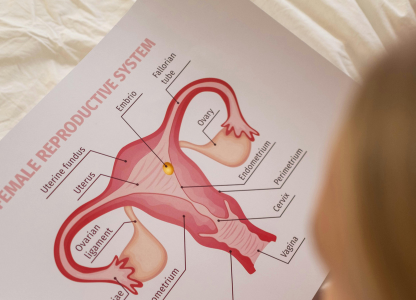
Erectile Dysfunction Isn’t Just Physical: The Mind-Body Connection
Erectile dysfunction (ED) is the difficulty attaining or sustaining an erection for a satisfying sexual intercourse. If you experience this, you are not alone; it’s more common than you think.
While physical causes of ED, such as aging, poor circulation or hormonal imbalances are important, there’s another crucial but often overlooked factor: the mind. Understanding this mind-body connection is the key to regaining your sexual wellbeing.
The Psychological Causes of ED
Erections are more than just a physical response; they rely on a complex interaction between your brain, nervous system, and circulatory system. When psychological obstacles arise, they can interfere with this process. Here’s how:
Performance Anxiety: The pressure to perform can create a cycle of fear and self-doubt, making erections increasingly difficult.
Chronic Stress & Anxiety: High levels of the stress hormone cortisol can lower testosterone and constrict blood vessels, directly impacting sexual function.
Depression: A common cause of low libido, depression disrupts the brain’s ability to trigger arousal and maintain erections.
Past Trauma & Emotional Barriers: Unresolved negative experiences, whether from childhood or past relationships, can create unconscious mental blocks against intimacy.
Recognizing these psychological factors is the first step toward overcoming ED.
“Fight-or-Flight” Effect: How Stress Blocks Erections
Your body is wired to prioritize survival over pleasure. When faced with stress—whether from work, financial worries, or relationship conflicts—your nervous system activates fight-or-flight mode. This reaction redirects blood flow to essential organs and muscles, leaving less for the penis.
Over time, chronic stress trains your body to suppress sexual arousal. Even in intimate moments, your nervous system may remain in a heightened state of alert, making it difficult to get or sustain an erection.
Relationship Dynamics: The Silent Saboteur
Your emotional connection with your partner plays a major role in sexual performance. If there are unresolved issues, ED can become an unspoken symptom of deeper relationship tensions.
Unresolved Conflict: Lingering arguments or built-up resentment can create emotional distance, making physical intimacy more challenging.
Lack of Connection: A fading emotional bond often leads to decreased sexual desire and performance issues.
Partner Expectations & Pressure: Feeling pressure to perform or sensing your partner’s frustration can increase anxiety, exacerbating ED.
Honest communication can help rebuild intimacy and ease psychological stressors affecting your sexual health.
Reclaiming Control: A Science-Backed Action Plan
If you suspect psychological factors are contributing to your ED, here’s a step-by-step approach to regain healthy functioning:
Step 1: Identify Triggers – Keep a journal to track ED episodes and note any related stressors or emotions.
Step 2: Strengthen Communication – Talk openly with your partner about your experiences. Reducing pressure and fostering emotional connection can make a difference.
Step 3: Seek Professional Support – A therapist or counselor specializing in sexual intimacy & relationships can guide you through effective strategies.
Step 4: Implement Stress-Reduction Techniques – Incorporate relaxation methods like yoga, deep breathing, and meditation into your routine.
Step 5: Exercise & Make Healthy Lifestyle Choices: Regular physical activity helps regulate stress hormones and boost testosterone levels, directly supporting erectile function.
Step 6: Consider Medical Assistance – While psychological approaches are key, short-term medical solutions (such as ED medications or herbal supplements) can support your progress.
Conclusion: The Mind-Body Approach to Overcoming ED
Addressing only the physical side of ED is like fixing a car’s engine but never refueling the tank. While physiological factors are important, your mindset, emotional health, and relationship dynamics are just as critical.
By taking a holistic approach—combining mental, emotional, and physical strategies—you can break free from performance anxiety, strengthen intimacy, and regain confidence in the bedroom. Real transformation happens when you take control of both your body and mind.
Ready to embark on your sexual wellness journey? Book a consultation with our multidisciplinary team and we’ll take care of the rest.
Disclaimer: The information above is for informational purpose and is not intended as personal medical advice.


